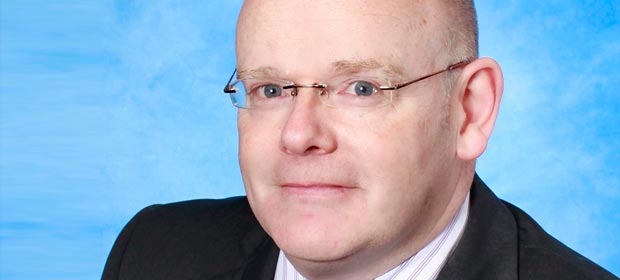Over a quarter of designated centres for people with disabilities remained to be registered by HIQA, its CEO, Phelim Quinn told the Oireachtas Joint Committee on Health.

Speaking on the regulation of residential centres for people with disabilities, Mr. Quinn said that, at present, there were just over 1,100 designated centres for people with disabilities providing approximately 9,000 beds. Twenty six per cent of these designated centres remained to be registered, 209 of which were governed and provided by non-statutory providers, while 71 centres were run by the HSE.
He said HIQA commenced regulation of designated centres for people with disabilities in 2013 with a view to all services being registered by 2016. It soon became clear that a significant number of disability services were not sufficiently prepared for the introduction of regulation. It was apparent that not all services would achieve registration by 2016 and thus by order of the Minister for Health the deadline was extended to 2018.
There were a variety of reasons why certain designated centres for people with disabilities failed to achieve the required level of compliance to allow for them to be registered. These included:
- Inadequate safeguarding measures
- Poor governance arrangements
- Institutionalised and outdated staff practices
- Inappropriate placement of people
- Poor physical infrastructure and living environments.
Said Mr. Quinn: “Some of these issues can be resolved by ensuring that the registered provider and managerial staff are competent, by reorganising and or enhancing current resources and by safely transitioning residents from congregated, institutional style settings. In fact, our inspectors have witnessed substantial improvements in the quality of people’s lives once good management and oversight arrangements have been put in place and when residents have moved into the community. However, the recurring issues of poor governance, inadequate safeguarding measures and institutional staff practices are more difficult to overcome and require courage, strong leadership and a commitment to changing the culture of an organisation.
“Notwithstanding these challenges, there is much good work being done. We have seen a gradual improvement over the past few years and most providers have a positive attitude to regulation. As is the experience in nursing homes, I would expect that good providers of disability services will now seek to move beyond basic compliance with the regulations and improve their services to meet the national standards as mandated by the Minister of Health in 2013.”
HIQA’s overview report on the regulation of social care and healthcare services in 2016, has highlighted ongoing challenges faced in these sectors, but also emphasised the fact that many people were receiving a good quality of service. This was reflected in the positive feedback HIQA received on inspection, in its own inspection reports and in the move towards increased compliance in certain areas.
Safeguarding
Mr. Quinn said that it was quite apparent that some services must take the safeguarding issue more seriously, particularly by ensuring that Garda vetting was in place for all staff and volunteers. Legislation introduced in 2016 strengthened the requirements for service providers to ensure that their staff were appropriately vetted, however, some services were neglecting to do so and were thereby failing in their legal responsibility to safeguard residents.
Accountability
He said that in terms of accountability, while providers were ultimately accountable for the quality of the service they provided, funders of services also bore responsibility and must ensure that public funds were spent to the benefit of the people in receipt of care services. The State distributed large sums of money to various organisations in exchange for the provision of services. However, there was often insufficient oversight of how this money is used or the outcomes it achieves.
“The introduction of an oversight regime in Ireland has the potential to deliver a range of benefits, including better experiences for those using services, improved service planning, greater accountability, better value for money and greater efficiency. HIQA is working collaboratively with the HSE to develop such a framework.”
The HIQA Chief said Government policy had directed regulation of services into areas where vulnerable people were in receipt of health and social care services. These included residential services for children, older people and people with a disability. These people were in the care of the State because they were deemed at risk of harm or abuse. During the course of HIQA’s work, it continued to identify other service types where it believed similar vulnerabilities exist.
“We cannot ignore the fact that there are many people in Irish society, such as the homeless, prisoners, migrants or asylum seekers in Direct Provision who have an entitlement to safe care and to be protected from abuse. HIQA does not yet have a legal mandate to engage in these services, yet we firmly believe that all vulnerable people in our society have a right to access high-quality and safe health and social care services. The continued absence of assurance in respect of the rights and needs of these vulnerable groups has the potential to create new hidden populations in our country.”

